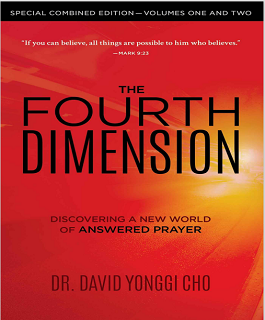Religious - eBooks
4 Books found
Battle Field of the mind
Authors: Joyce meyer
Introduction ow can we express the importance of our thoughts sufficiently in order to convey the true meaning of Proverbs 23:7: For as he [a person] thinks in his heart, so is he...? H The longer I serve God and study His Word, the more I realize the importance of thoughts and words. On a fairly regular basis, I find the Holy Spirit leading me to study in these areas. I have said, and I believe it is true, that as long as we are on this earth we will need to study in the areas of thoughts and words. No matter how much we know in any area, there are always new things to learn, and things we have previously learned that we need to be refreshed in. What does Proverbs 23:7 really mean? The King James Version says, ...As he [a man] thinketh in his heart, so is he .... Another translation states, "As a man thinks in his heart, so does he become." The mind is the leader or forerunner of all actions. Romans 8:5 makes it clear: For those who are according to the flesh and are controlled by its unholy desires set their minds on and pursue those things which gratify the flesh, but those who are according to the Spirit and are controlled by the desires of the Spirit set their minds on and seek those things which gratify the [Holy] Spirit. Our actions are a direct result of our thoughts. If we have a negative mind, we will have a negative life. If, on the other hand, we renew our mind according to God's Word, we will, as Romans 12:2 promises, prove out in our experience "the good and acceptable and perfect will of God" for our lives. 9 For the weapons of our warfare are not physical [weapons of flesh and blood], but they are mighty before God for the overthrow and destruction of strongholds, [Inasmuch as we] refute arguments and theories and reasonings and every proud and lofty thing that sets itself up against the [true] knowledge of God; and we lead every thought and purpose away captive into the obedience of Christ (the Messiah, the Anointed One). 2 CORINTHIANS 10:4,5 BATTLEFIELD OF THE MIND I have divided this book into three main parts. This first part deals with the importance of thoughts. I want to establish firmly in your heart forever that you need to begin to think about what you are thinking about. So many people's problems are rooted in thinking patterns that actually produce the problems they experience in their lives. Satan offers wrong thinking to everyone, but we do not have to accept his offer. Learn what types of thinking are acceptable to the Holy Spirit and what types are not acceptable. Second Corinthians 10:4,5 clearly indicates that we must know the Word of God well enough to be able to compare what is in our mind with what is in the mind of God; any thought that attempts to exalt itself above the Word of God we are to cast down and bring into captivity to Jesus Christ. I pray that this book will help you to do that. The mind is the battlefield. It is a vital necessity that we line up our thoughts with God's thoughts. This is a process that will take time and study. Don't ever give up, because little by little you are changing. The more you change your mind for the better, the more your life will also change for the better. When you begin to see God's good plan for you in your thinking, you will begin to walk in it.

BEAUTY FOR ASHES Emotional Healing
Authors: Joyce meyer
Repressed Anger I. Emotions – What Are They? A. Emotions (defined/Webster’s) – The part of the consciousness that involves “feeling.” (To move out.) A response involving physiological changes as a preparation to action. B. Many different emotions: Love Embarrassment Fear Excitement Hate Discouragement Anger Disappointment Lust II. Anger – What To Do About It! A. A hurt person wants to place blame. 1. Ephesians 6:12 – We war not with flesh and blood, but with principalities and powers. B. Seeking compensation for hurts and injustices done 1. A woman whose father didn’t show love may seek that from her husband. a. In balance, this is part of the answer. b. Out of balance, it can be disastrous. 2. A girl who received unfair discipline or is physically abused may not be able to allow her husband to discipline their children. 3. A man who grows up in an angry, turbulent atmosphere may insist on having serenity among his own children. BEAUTY FOR ASHES 7 Potential problem – He insists so much on a “calm atmosphere” in the home that his children are not allowed to express normal emotions. 4. ANGER IS NORMAL – REPRESSED ANGER IS DANGEROUS. Ephesians 4:26-27 – When you’re angry, do not sin. Don’t let the sun set on your anger. Do not open a door or give the devil a foothold of this kind. 5. “Chip on the shoulder” syndrome a. “I was hurt, and I’m angry about it; so now everyone owes me ‘preferential treatment’ because someone has to make up for what happened to me.” b. “Attitudes” that can be produced: Demanding Aloof Overbearing Negative C. Can negative emotions be controlled? 1. We cannot fully control their presence. 2. We can control how we express them. 3. Example: An abused girl now feels uncomfortable around men she doesn’t know really well. Is she in bondage? Not unless she allows the emotion to control her! 4. The presence of a feeling doesn’t mean you aren’t free. BEAUTY FOR ASHES

Bought with the blood
Authors: Derek Prince
CHAPTER 1 One All-Sufficient Sacrifice A single theme runs throughout this book: atonement. This word is comparatively rare in contemporary English. In fact, many English-speaking people today do not even know what the word means. Its meaning begins to appear, however, when we divide the word up into its three syllables: at-one-ment. That is what atonement really means—that God and the sinner are brought into a relationship in which they are atone. A more common word today is reconciliation. Through the cross God and the sinner are reconciled to each other. There is a vitally important difference between the word translated atonement in the Hebrew of the Old Testament and the word translated atonement in the Greek of the New Testament. In Hebrew the word is kippur and means "covering." The Day of Atonement was a day of covering. By the sacrifices offered on that day, the sins of the people were covered— but only for one year. The next year at the same time, their sins had to be covered once more. The sacrifices offered that day provided no permanent solution, therefore, to the problem of sin; they merely provided a temporary covering. On each successive Day of Atonement, that covering was extended for one more year. The picture of atonement in the New Testament is totally different. We see this when we contrast two passages in Hebrews—the book that deals, above all others, with Jesus as our High Priest and with the sacrifice He made on our behalf. First, Hebrews 10:3-4 speaks of the sacrifices of the Old Testament: "In those sacrifices there is a reminder of sins every year." So, far from taking sin away, those sacrifices reminded the people of the problem of sin. "For it is not possible," the writer continues, "that the blood of bulls and goats could take away sins." The central issue here is taking away sins, not merely covering them. In Hebrews 9:26, on the other hand, the writer speaks about what was accomplished by the death of Jesus, in direct contrast to the Old Testament sacrifices. In the second half of that verse, speaking of Jesus, the writer says: "But now, once at the end of the ages, He has appeared to put away sin by the sacrifice of Himself." So when Jesus came and offered Himself as a sacrifice on the cross, He put away sin. This action contrasts with the Old Testament sacrifices, which merely reminded people of the fact that sin had not been dealt with and provided a covering that was valid for only one year. When John the Baptist introduced Jesus in John 1:29, therefore, he said, "Behold! The Lamb of God who takes away the sin of the world!" Notice once again how different this is from the Old Testament. Jesus took away sin. For that reason, for those who have accepted His sacrifice, there remains no further sacrifice for sins
- Featured

The Fourth Dimension
Authors: Dr. David Yongi Cho
ncubation: A Law of Faith God will never bring about any of His great works without coming through your own personal faith. It is taken for granted that you have faith, for the Bible says that God has dealt to each and every one of us a measure of faith. You have faith whether you feel it or not. You may try to feel faith, but when you need faith, then faith is there. It is there for your use, like having two arms; when you need to use them, you just reach out your arms and move them. I do not need to feel that my two arms are hanging on my shoulders to know that I have them. There are, however, certain ways your faith works, and links you to the Heavenly Father who dwells within you. The Bible says that faith is the substance of things hoped for, a substance which first has a stage of development—of incubation—before its usage can be full and effective. You might now ask, “What are the elements needed to make my faith usable?” There are four basic steps to the process of incubation.
